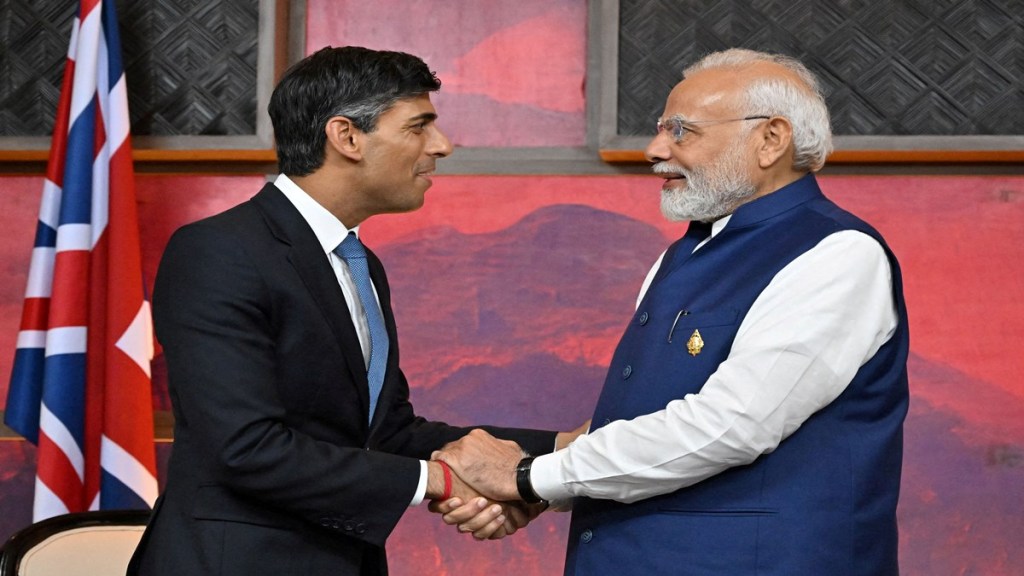British Prime Minister Rishi Sunak on Wednesday approved the Young Professionals scheme, under which India and the UK will each grant 3,000 visas every year to 18-30 year old degree-holders to live and work for two years.
“Today the UK-India Young Professionals Scheme was confirmed, offering 3,000 places to 18-30-year-old degree-educated Indian nationals to come to the UK to live and work for up to two years,” the UK prime minister’s office tweeted.
Sunak and Prime Minister Narendra Modi also discussed a trade deal between the two nations when they met at the G20 summit in Indonesia, the UK PM’s office said on Wednesday.
“They looked forward to the agreement of a UK-India free trade deal, which has the potential to unlock investment and increase jobs in both our countries, as well as expanding our deep cultural links,” the UK PM’s office said in a statement.
Also Read: Issues related to power dilution resolved with govt: Trai chairman
Earlier, in an official statement, Sunak said that the YP scheme give India’s brightest young people “the opportunity to experience all that life in the UK has to offer — and vice-versa — making our economies and societies richer”.
The British government also highlighted that India is the first visa-national country (meaning Indian nationals need prior visas to enter the UK) to benefit from such a scheme. The YP scheme was announced last year in May, as part of the Migration and Mobility Partnership (MMP) that the two countries signed.
The 3,000 work visas for Indians under the just-confirmed scheme are a 2% addition to the total number of UK work-related visas Indians got in the year ended June 2022, data from the UK’s latest immigration statistics report shows. The addition, however, falls far short of the demand on the Indian side — UK work-visa applications over July 2021 to June 2022 numbered over 117,400, while about 103,000 were successful, indicating over 12% denials.
The YP scheme’s value in terms of optics, though, is immense, since it signals a marked departure from the doubts UK home secretary Suella Braverman voiced just over a month ago.
Braverman, during her stint in the home office in the Liz-Truss premiership, had sounded “reservations” over a work-in-progress trade deal between India and the UK, which is expected to free up movement of workers between the two countries.
In an interview to The Spectator, a prominent UK newspaper, she had said that the MMP, which is aimed at protecting those who migrate lawfully to either country by enhancing cooperation in combating organised immigration crime and speeding up returns of visa overstayers.
She had flagged that Indians formed the largest group of “visa overstayers”.
While, as per UK home office statistics, Indians do indeed form the largest absolute group of those who overstayed their UK visas, at 20,706 in 2020, proportionally, there are many nationalities that have a proportionally higher cohort of those in breach of the visa period.
The YP scheme comes on top of the post-study Graduate Route for Indians looking to work in the UK, under which eligible graduates get 2-3 years to stay back after studies in the UK and work. Applications under this route have been open from July last year. The latest official data from the UK on immigration shows that close to 118,000 Indians received visas to study in that country in the year ended June 2022 — a whopping 89% increase from the previous year (2020, the year Covid hit). India has since overtaken China as the largest nationality that was issued sponsored study visas to the UK.

